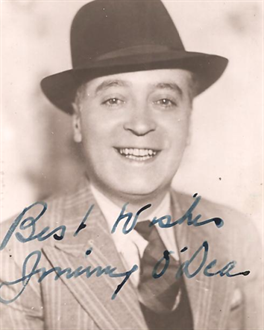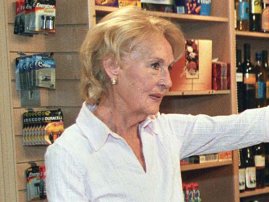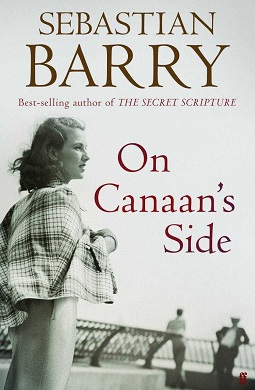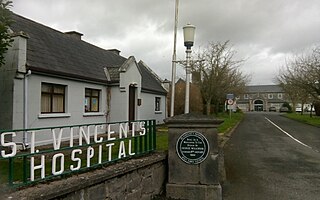
James Augustine O'Dea was an Irish actor and comedian.
Events from the year 1899 in Ireland.

Robin Dunne is a Canadian actor who has had numerous leading roles in sequels throughout his career, but is perhaps best known for his role as Doctor Will Zimmerman in the science fiction television series Sanctuary.

Joan O'Hara was an Irish stage, film and television actress. She was one of Ireland's most popular actresses and was, at her death, recognisable to television viewers as Eunice Dunstan, a gossip in Fair City on RTÉ One.
Sebastian Barry is an Irish novelist, playwright and poet. He was named Laureate for Irish Fiction, 2019–2021.

Mary Chavelita Dunne Bright, better known by her pen name George Egerton, was a writer of short stories, novels, plays and translations, noted for her psychological probing, innovative narrative techniques, and outspokenness about women's need for freedom, including sexual freedom. Egerton is widely considered to be one of the most important writers in the late nineteenth century New Woman movement, and a key exponent of early modernism in English-language literature. Born in Melbourne, Colony of Victoria, she spent her childhood in Ireland, where she settled for a time, and considered herself to be "intensely Irish".
Donal McCann was an Irish stage, film, and television actor best known for his roles in the works of Brian Friel and for his lead role in John Huston's last film, The Dead. In 2020, he was listed as number 45 on The Irish Times list of Ireland's greatest film actors.

A Long Long Way is a novel by Irish author Sebastian Barry, set during the First World War.

Holy Hour is the Roman Catholic devotional tradition of spending an hour in Eucharistic adoration in the presence of the Blessed Sacrament. A plenary indulgence is granted for this practice. The practice is also observed in some Lutheran churches and some Anglican churches.

Irish Destiny is a 1926 film made in the Irish Free State, directed by George Dewhurst and written by Isaac Eppel to mark the tenth anniversary of the Easter Rising. A cut version was released in Britain, entitled An Irish Mother.
Home Farm Road is a regional road situated in upper Drumcondra, Dublin, Ireland. It is notable for being the place of origin of Home Farm F.C. It was previously named St. Mary's Road up to the tenth house.
"Weela Weela Walya", also called "Weila Waile", "Wella Wallia" or "The River Saile", is an Irish schoolyard song that tells the story of an infanticide in a light-hearted way. It was popularised in the 1960s by Irish folk bands The Dubliners and The Clancy Brothers.

On Canaan's Side is a 2011 novel written by Irish playwright and novelist Sebastian Barry.

Annie Dunne is a novel written by author and playwright Sebastian Barry. First published by Faber and Faber in 2002 it is currently under reprint from Penguin Books. Set in rural Ireland in the late 1950s the novel recounts the life of Annie, who having been made homeless after the death of her sister is forced to move to a farm in County Wicklow.

The Church of Our Lady Seat of Wisdom, also known as Newman University Church or Catholic University Church, is a Catholic church in Dublin, Ireland.
David Brady is an Irish former Gaelic footballer who played for the Mayo county team in midfield in the 1990s and 2000s. As of 2020, he works as a journalist.

In the Irish Free State and Republic of Ireland, the county home was an institution which replaced workhouses from 1922 onwards.
Eamon ColmanRHA is an Irish painter. He is a member of Aosdána, an elite Irish association of artists.
Anthony Felloni is an Irish heroin dealer, pimp and career criminal. He became a hate figure in the 1980s and 1990s, blamed for "flooding" Dublin with heroin and creating the city's first generation of heroin addicts.












